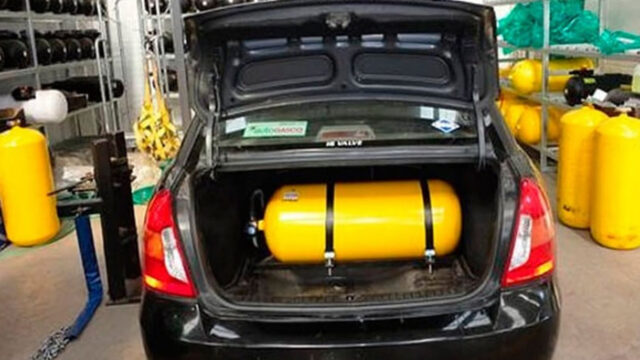- Drivers search endlessly for filing points, meet empty pumps
- No solid framework for implementation of initiative, stakeholders lament
- Users express fear over lack of proper training
A severe lack of CNG products has left many drivers stranded, according to investigations by THE POINT
Long lines at the few CNG stations that are open, especially in Abuja and other large cities, provide a gloomy image of inefficiency and annoyance.
Drivers report traveling hundreds of kilometers in search of refueling points, only to be met with empty pumps.
A commercial bus driver in Abuja, Ahmed Yusuf, who shared his ordeal, said, “I spent almost the whole day searching for CNG. It’s even more expensive now than they told us when I converted my vehicle. How do they expect us to survive like this?”
The anticipated nationwide installation of CNG infrastructure is also significantly behind track, according to investigations.
Less than 20% of the intended CNG refueling stations are already open, according to sources within the Nigerian National Petroleum Corporation, meaning that drivers must rely on a small number of overworked facilities.
Industry observers blame the lack of infrastructure on inadequate implementation and lack of cooperation among stakeholders.
“It is clear that the government rushed into this initiative without a solid framework for implementation,” said an energy policy expert who asked not to be named.
In addition to the scarcity problem, drivers have expressed concern about safety. Accident concerns have increased as a result of reports of poor equipment and incorrect conversion kit installation at certain refueling stations.
The risk is increased by the claims of some drivers that they were not properly trained to handle CNG vehicles.
A driver in Abuja, who wished to remain anonymous, expressed dissatisfaction with the conversion process, stated, “I was not provided with guidance on how to handle any issues that may arise. Now I’m afraid of even travelling long miles.”
The lack of CNG gas, as well as other difficulties, has begun to have an impact on Nigeria’s economy.
To avoid losses, commercial transport companies are raising fares, adding to the financial stress on commuters who are already struggling to keep up with rising living costs.
An economist, Bamidele Adegoke, warns that if these issues remain, the CNG initiative may collapse, resulting in significant financial losses, particularly for small enterprises that rely on transportation.
“The government has acknowledged the issues and promised prompt response. The Ministry of Petroleum Resources has announced plans to expedite the construction of new CNG refueling stations and strengthen petrol supply lines. Critics believe that these steps come too late for many who have already lost faith in the system.
“While the CNG vehicle programme remains a good idea for Nigeria’s energy future, its implementation hasn’t been carried out well enough,” Adegoke said.
The introduction of compressed natural gas vehicles in Nigeria has been hailed as a breakthrough initiative to cut transportation costs and harness the country’s abundant natural gas reserves. But a closer look reveals problems with the rollout, widespread gas shortages and growing driver dissatisfaction threaten to halt the programme.
The Nigerian government, under its Presidential CNG Initiative, set out to diversify the nation’s energy mix and cut dependence on petrol.
The programme promised affordable and eco-friendly transportation, aiming to convert millions of vehicles to CNG.
But beneath the optimism lies a storm of discontent, as infrastructure and planning gaps expose early adopters to significant hardships.
Experts said if the issue of scarcity, safety issues, and infrastructure gaps are not addressed immediately, the programme might run the danger of failing due to unfulfilled expectations.

